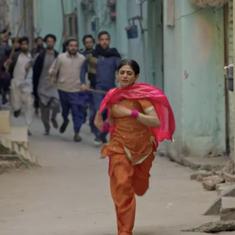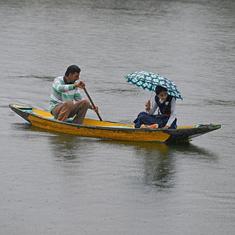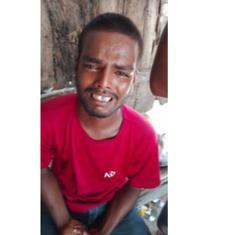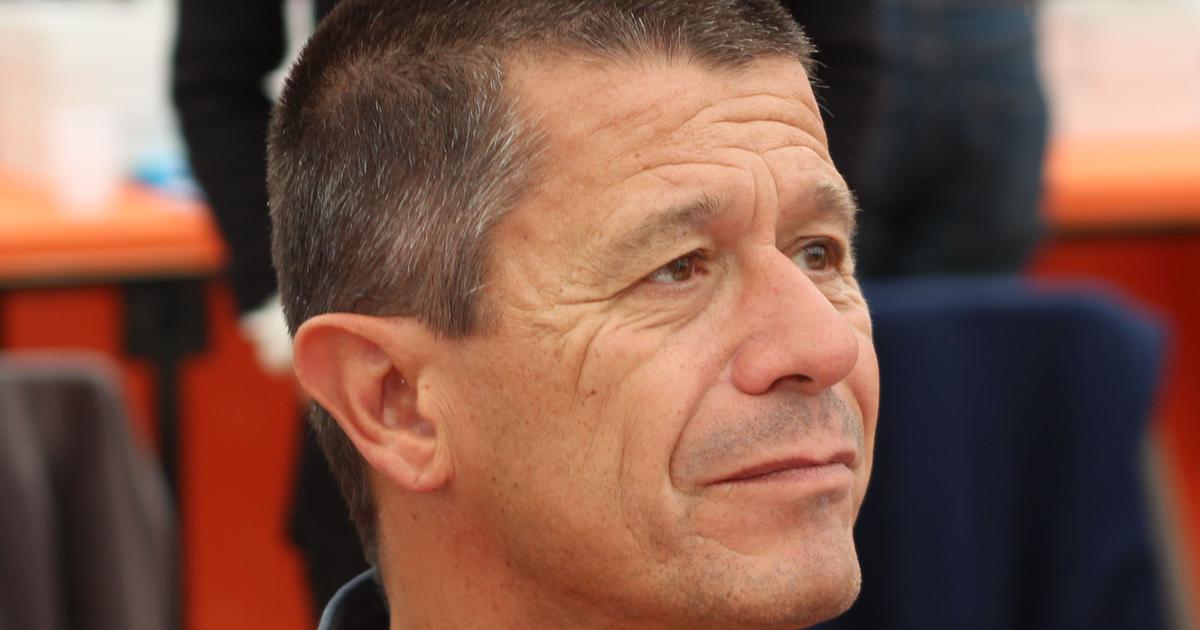Narrated in the third person, Class Trip by Emmanuel Carrère presents the perspective of Nicolas, a young boy in secondary school, somewhere between the ages of 10 and twelve. It is the month of February and his class will be spending a fortnight at a skiing resort. Nicolas’s father agrees to send him – but on one condition: his son won’t be taking the bus with the other boys; he will drop Nicolas off in his car. The teacher expounds on the value of self-dependence and camaraderie among the young boys, but his father is unmoved.
At the chalet
Nicolas is shy and small for his age, and though he is not actively bullied, he is aware of his status as an outsider. His parents’ overprotective nature – especially his father’s – has not gone unnoticed by the rest of the boys. In addition to this, he has only recently joined the school. After driving 300 miles with his father in near silence, Nicolas finally arrives at the chalet, later than everyone else. His father insists he call home regularly and instructs the teacher to ensure his well-being. As if the mortification of an overbearing father wasn’t enough, Nicolas is distressed to realise that he has left his luggage in the car boot.
Hodkann – the most unlikely boy – comes to his rescue. Tall and cocky beyond his age, Hodkann commands the respect of the teachers and the boys alike. Being in his good books would be the ultimate shield to protect himself from the jokes and rude comments of other boys. Nicolas is somewhat responsible for his misery, too. He wallows in self-pity, stays up all night in fear of wetting himself, and is relieved when he catches a fever. He can now truly stay out of trouble but unfortunately for him, his teacher and the instructors, Patrick in particular, insist that he make the best use of his time there.
Patrick offers to take Nicolas to the town to buy him essentials and on the way, they listen to music. Nicolas, until now, has never been asked about his likes and dislikes, nor has he been spoken to kindly. He is warmed by Patrick’s genuine affection. He admires his physique, his gentle temperament, his long hair, and his friendly ways – Nicolas does not see him as father figure but role model, someone he’d like to be when he’s older.
Hodkann takes Nicolas under his wing. A fatherless boy, he is curious about Nicolas’s father, a travelling salesman of surgical supplies. Nicolas tells him the car trunk is full of artificial limbs. Hodkann makes sinister jokes about it, going so far as to say, “If I were your father, I’d use you for demonstrations. I’d cut off your arms and legs, I’d fit on the artificial ones, and I’d show you to my clients like that. It’d make a great advertisement.”
A death
Nicolas is reminded of his father’s warnings about enterprising men who kidnap children, murder them, to trade their organs. This fear was planted in Nicolas early on, allowing his father to keep him and his younger brother constantly within eyeshot.
His popularity at an all-time low and energised by the interest of Hodkann and Patrick, Nicolas tries to play detective when a young boy, René, goes missing and is found murdered. The elders and the boys are understandably disturbed, but things are going to take a worse turn for Nicolas.
As tension mounts and Nicolas starts spinning tales about a suspicious man driving around in a van, abducting children. An organ trafficker. He exaggerates his own story and claims that his own younger brother had been similarly abducted and had had a kidney removed.
Nicolas is on to something – but the truth never really reveals itself. With distressing snippets from the past, his mother’s nervous ways, his father’s prolonged absence from home, Carrère suggests a possibility that Nicolas is too young to piece together.
The police end up at the chalet and the interrogation begins. The empty spaces are filled with silences and cropped sentences; the elders seem to know something, but decide Nicolas’s mother is the right person to tell him the truth. By the end, it is fairly obvious what might have happened – a horrifying crime, a life-altering revelation, and an irreversible personal tragedy.
Not for once does Carrère forget that his protagonist is a child, his innocence intact despite everything he has suffered. He presents the world exactly as Nicolas understands it – small moments of clarity between long spells of fantasy and a romantic imagination of the future. Like his days in the chalet, where he’s always only half-awake, the reality for him is suspended in gaps of consciousness.
This white world, cold and colourless, duly mirrors the barren childhood that he has been hurtled towards – let down by his father, abandoned by his teachers, and already shunned by his classmates.
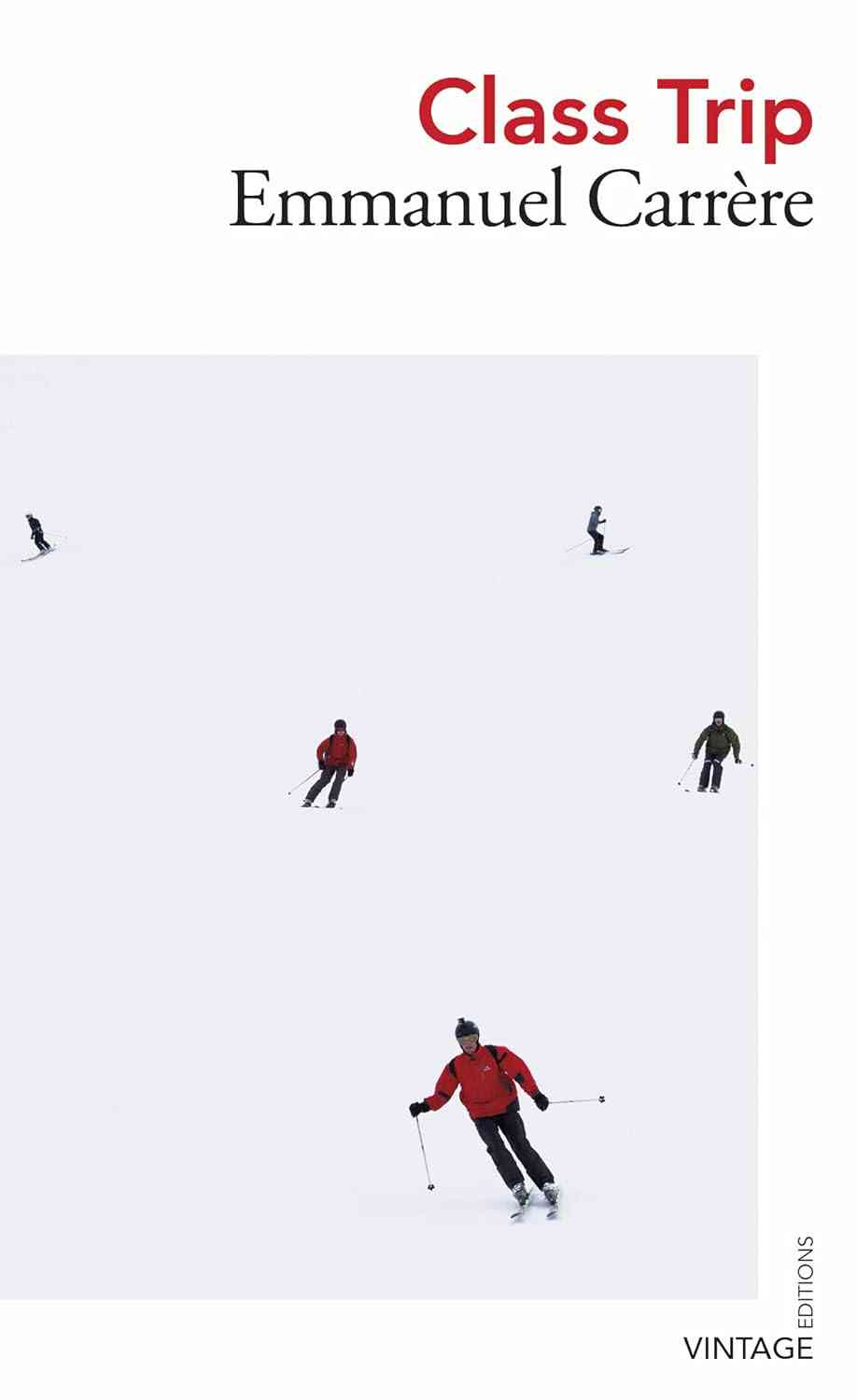
Class Trip, Emmanuel Carrère, translated from the French by Linda Coverdale, Vintage.

